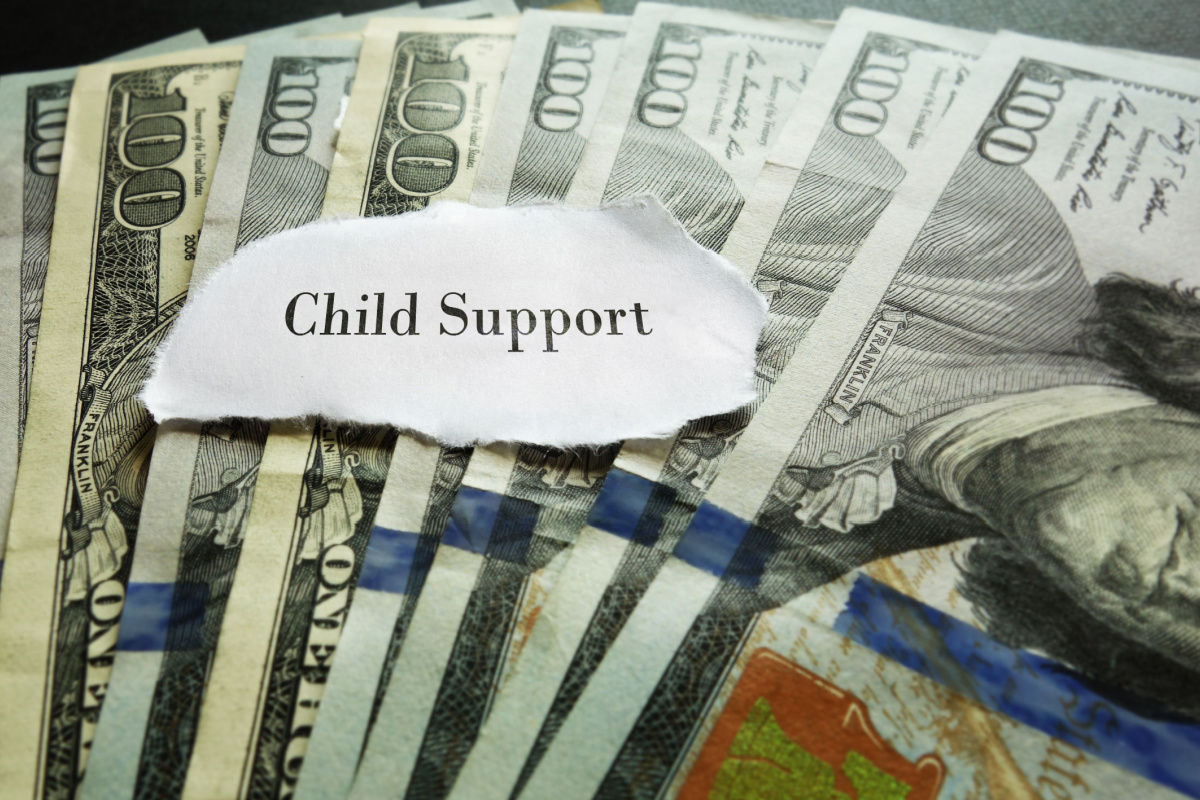Child Support Lawyer San Diego
Along with child custody, child support is one of the significant points of concern for parents going through a divorce or paternity action. Like custody, there are specific factors the Court will analyze to determine the proper amount of child support.
While this may seem relatively straightforward, many issues can cause these cases to become highly complicated. You can find more information about these issues below, including:
Table of Contents
- What is Child Support?
- Who is Responsible for Making Child Support Payments?
- What Factors are Used to Create the Amount of Child Support?
- How Do You Calculate Child Support Payments?
- What Happens if you Fail to Make Child Support Payments?
- Can Child Support Agreement be Modified in California?
- Other Frequently Asked Questions about Child Support
At the Law Office of Steven M. Bishop, CFLS, we have helped many parents who have struggled to find answers to their child’s support concerns. We can help you secure the support you need for your child or help you avoid overpaying for support.
Our firm is led by founding lawyer Steven M. Bishop, who has been certified as a specialist in family law by the California Board of Legal Specialization. Mr. Bishop has over four decades of legal experience with family law concerns, including countless cases involving the determination of child support.
What is Child Support?
Child support is the name given to payments that one parent must provide to the other after a divorce or while a divorce is proceeding. The payments are intended to be used for the support of a child and are often awarded to the parent who is given child custody.
Your child support attorney in San Diego may play a significant role in whether you are assigned child support or how much you have to pay. What you or your partner owes may depend on your lawyer’s ability to show that you are experiencing hardship or that your spouse has greater assets than they are reporting.
Separating couples can come to their own agreements, but most child support arrangements are set and enforced by the court. Failing to meet your obligations for child support can result in serious legal consequences. You can learn more about these consequences in the section further down titled: What Happens if you Fail to Make Child Support Payments?
Who is Responsible for Making Child Support Payments?
The court is the final determiner of who is responsible for providing child support. Child support is typically awarded to the parent who provides for the child the greater amount of the time. Support is not always awarded in situations where the child is spending roughly equal time with both parents.
In California, the courts consider the welfare of the child to be the highest priority. That means that neither parent is automatically preferred when it comes to custody. The court may award custody to either parent and may show a preference for arrangements that give children access to both parents.
What Factors are Used to Create the Amount of Child Support?
The child’s parents might be able to agree on the amount of child support that the noncustodial parent will pay to the custodial parent. When that happens, the court will usually accept the agreement.
However, divorcing couples often have trouble reaching a final agreement in these cases. If they are unable to come to an agreeable solution, the Court decides the child support amount based on a statewide guideline calculation.
California state guidelines are based on each parent’s net disposable income and the amount of time the child(ren) spends in each parent’s residence. The law determines net disposable incomes by taking the total of all sources of a parent’s earnings and subtracting certain allowances, such as:
- The total earnings of both parents
- Alternative income such as trusts, pensions, and contracting
- The tax filing status of both parents
- The taxes owed by both parents
- Costs such as mandatory union dues, retirement contributions, and healthcare premiums
- The amount that is being paid to support the spouse already
- The costs to support the child, including daycare, tuition, etc.
How Do You Calculate Child Support Payments?
When the court is forced to assign child support payment, it will turn to an equation that is set by the Statewide Uniform Guideline. That equation is written as:
CS = K[HN %68 (H%)(TN)]
- CS = child support amount.
- K = amount of both parents’ income to be allocated for child support as set forth in paragraph (3).
- HN = high earner’s net monthly disposable income.
- H% = approximate percentage of time that the high earner has or will have primary physical responsibility for the children compared to the other parent. In cases in which parents have different time-sharing arrangements for different children, H% equals the average of the approximate percentages of time the high earner parent spends with each child.
- TN = total net monthly disposable income of both parties.
- K (amount of both parents’ income allocated for child support) equals one plus H% (if H% is less than or equal to 50 percent) or two minus H% (if H% is greater than 50 percent) times the following fraction:
Applying this formula for arriving at the prescribed amount of child support is very complex. You will not often be able to define factors such as total monthly disposable income until they have been settled in a courtroom. However, experienced Family Law attorneys like Steven M. Bishop have access to programs and software that can provide you with an accurate estimate.
In some of these cases, a parent may make an effort to underreport income to the Court. This is especially likely when a party owns a business or is self-employed. In these situations, it is extremely important to work with an experienced attorney to ensure the Court has the correct information when making its final determination.
Lawyers may hire forensic accountants and other experts to serve as witnesses.
What Happens if you Fail to Make Child Support Payments?
Failing to make child support payments is a serious legal issue. If you are making payments that are more than you can afford, you should speak to a lawyer about your options. However, simply not making payments is one of the worst legal decisions you can make.
If a parent fails to make a payment, their assets can be pursued, and they may face criminal contempt of court charges.
Criminal contempt of court in California can be sentenced with:
- Fines not exceeding $1000 for the first finding of contempt, and additional court costs for later findings
- Five days of imprisonment for the first finding of contempt and another 240 hours of imprisonment for additional finding after the 3rd finding
- The loss of the right to enforce provisions of prior divorce agreements
- Community service of up to 120 hours for each finding of contempt
The court may also enforce the child support agreement by doing all of the following:
- Freezing your bank account and other assets
- Suspending your driver’s license
- Suspending your professional licenses
- Reporting your failure to pay to credit bureaus who may lower your score
- Seizing tax refunds, workers compensation awards, or disability benefits to pay for child support
- Seizing passports until the balance has been paid
- Criminal sanctions and potential wage garnishment
What if My Spouse is Refusing to Make Payments?
If your spouse is failing to make the child support payments that they have been assigned, a lawyer may be able to help you compel them to pay. Your lawyer can encourage the court to set enhanced penalties for nonpayment.
Can Child Support Agreements be Modified in California?
Yes, child support agreements can be modified in California. San Diego County has its own Child Support Services department that is responsible for receiving modification requests and ensuring they are processed.
You may be more likely to succeed in a modification if the following circumstances of your agreement have changed.
Examples of changes that can lead to a modification:
- A change in your income (for example, if you’ve lost your job or earned a major promotion)
- A change in your status (for example, if you have been imprisoned or deployed in a military operation)
- A change in primary custody (for example, if you were not originally housing the child most of the time, but you are now)
- A change in visitation agreements
- A change in your benefits (for example, if you are now eligible or become ineligible for social security or disability)
There is a precise process you need to follow to modify your agreements. A lawyer can help you navigate this process correctly. To begin, you’ll need to contact the San Diego Department of Child Support Services and request a review of the current order.
The SDCSS will only consider these requests if the current support amount will change by $50 or 20%. Both parents will be given a chance to renegotiate the support amount. If they agree, the order can be amended without a court appearance.
If the parents cannot come to an agreement, a court hearing will be scheduled to resolve the conflict. The court may refuse to consider the change or impose a new agreement.
Frequently Asked Questions about Child Support in California
Q: Can child support be assigned before the divorce is finalized?
Yes, you can ask for child support before the divorce proceedings are completed. The judge may put a temporary order in place that will hold until the final judgment comes down.
Q: How is child support paid?
A: The method by which child support is paid may depend on the agreement. Typically, the support payments are deposited directly into the account of the parent with custody. It may also be submitted through card or check.
Q: What if I need support and my spouse is unemployed?
A: Unemployment can happen naturally, but it is not unknown for parents to deliberately quit their jobs or reduce hours before a divorce case. The courts tend to come down hard on anyone who is unemployed due to their own behavior. These parents may be charged child support based on what they could earn rather than what they are earning.
Q: What if I need support that is not covered by the Statewide Uniform Guideline?
A: The court is typically required to add on expenses that are necessary for the child’s support. For example, if you have daycare costs because you are employed or in training, those costs will also be considered.
Additionally, if the child receives special support from tutors or therapists, those costs may also be included as part of the calculations.
Q: How long must child support be paid in California?
A: Unless they are modified, child support agreements are required until the child turns 18 and is considered to be legally emancipated. If the child is a full-time student in California, the support may continue until they graduate or turn 19.
Children can be emancipated early, but only by their own decisions. The child may be considered emancipated early if they get married, join the military, or seek an emancipation order.
Both parents may agree to a support order that lasts longer if they want to play a role in the child’s college education.
Q: What do PRS and PPS mean?
A: These terms, which are frequently used in child support cases, refer to the Person Receiving Support (PRS) and Person Paying Support (PPS). It’s how court paperwork identifies the person responsible for making the payments and the person receiving them.
Questions About Your Case?
If you are having difficulty with a child support matter, we can help you understand the available options. Call our San Diego office at 619-304-8417 or send us an email to arrange your free telephone consultation with our experienced attorney.






